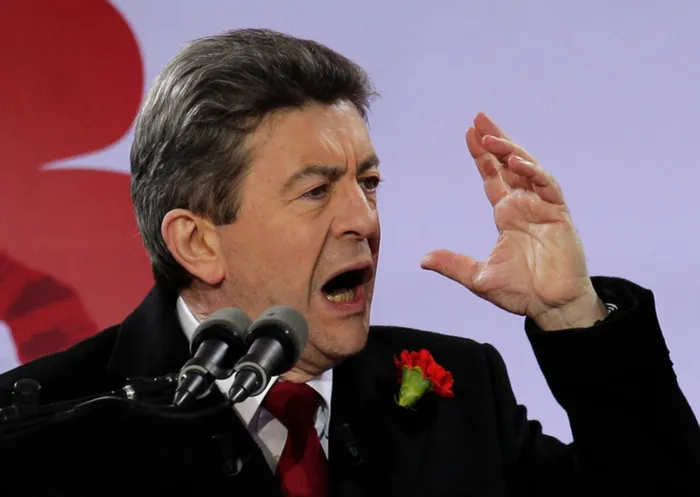
French Leftist leader Jean-Luc Melenchon French Leftist leader Jean-Luc Melenchon
Paris - For Jean-Luc Melenchon, the old-style leftist leader whose anti-capitalist rhetoric hoisted him to political stardom during France's presidential campaign, the end of election season brings an abrupt landing and doubts about his brand of politics.
The fall back to earth comes after a dizzying run, as Melenchon transformed the far left from bit player to France's fourth most powerful political current in a few months, largely on the strength of his blazing personality and poetic speeches.
From tiny protests at the offices of ratings agency Standard & Poor's to concert-style outdoor rallies in Paris and Toulouse, Melenchon drew crowds by tapping into people's rage at financial pressures bearing down on France from outside.
But his formula of rousing speeches peppered with revolutionary references fell short at the ballot box, as he was upstaged twice by his far-right rival, Marine Le Pen, first in the presidential race and then in a local parliamentary contest.
Deprived of a seat in the National Assembly, Melenchon faces an uncertain future as the head of a Left Front coalition which has only existed as an ad-hoc group for competing in elections.
His aides say he is back at his job as a European Parliament member and is still reflecting on what role to play in France. Some analysts see him returning to the political scene to lead street protests against any possible budget cuts.
“He was the Left Front's presidential candidate, he influenced the national debate, it is clear he will continue to weigh on the national scene,” said Martine Billard, co-chief of one of the Front's member groups and a Melenchon aide.
“For now, he is going to take the summer to think.”
His Left Front, made up of Communists and smaller far-left parties, won 10 parliamentary seats in an election on Sunday, five short of being enough to form a group with the sway to commission inquiries and command more speaking time.
The result deprives Melenchon of a national stage and leaves his coalition with little power to influence President Francois Hollande's centre-left Socialist government, which together with allies commands 314 seats, an absolute majority.
“Melenchon will become inaudible,” said Stephane Courtois, a specialist of communism in France. “He failed personally, his party has met with failure, and even worse than that, the Communist party did not come out intact.”
Despite his showing in the presidential race, where he placed fourth with 10 percent of votes, Melenchon's popularity masked a weakening of the far left in France, Courtois said.
Some commentators saw the Communist Party, which has long held a few seats in parliament but is seen as out of touch with young voters, keen to drop Melenchon after the election period.
Instead, Melenchon refused a parliamentary deal with the Socialists that could have secured the hard left more seats, hurting both himself and the Communists.
The Communists may still be offered a couple of junior ministerial posts but are discussing refusing a role in the government until after it has ratified an EU budget discipline pact unpopular with left-wingers and Melenchon supporters.
Eurosceptics on the left are likely to show even more anger over any move by Hollande to hand EU institutions more power over the national budget, something Melenchon may tap into.
“He may be able to conserve a role as a contrarian, of a leader in demonstrations,” said Dominique Reynie, a political scientist and head of the liberal Fondapol think tank.
The Left Front's score on Sunday was overshadowed by the dramatic return of the far-right National Front to parliament after a quarter of a century in the wilderness, thanks mainly to a 22-year-old scion of the Le Pen family.
The election of the fresh-faced Marion Marechal-Le Pen as France's youngest-ever parliamentarian gives the party founded by her grandfather Jean-Marie Le Pen fresh momentum just as the far left's surge has proved short-lived.
While National Front leader Marine Le Pen, Melenchon's arch-foe, was defeated in her constituency by a Socialist, her relative youth at 44 means she will continue to run in future presidential and parliamentary elections.
The future is more uncertain for Melenchon, 61, who said after his parliament defeat that he would return to Strasbourg, where he has been a European Parliament member since 2009.
“It's a handicap to not be in the National Assembly,” he said, but added that he could still do useful political work. “I am an important spokesman for the Left Front, which gives me authority.” - Reuters
